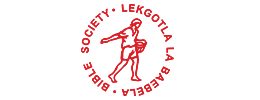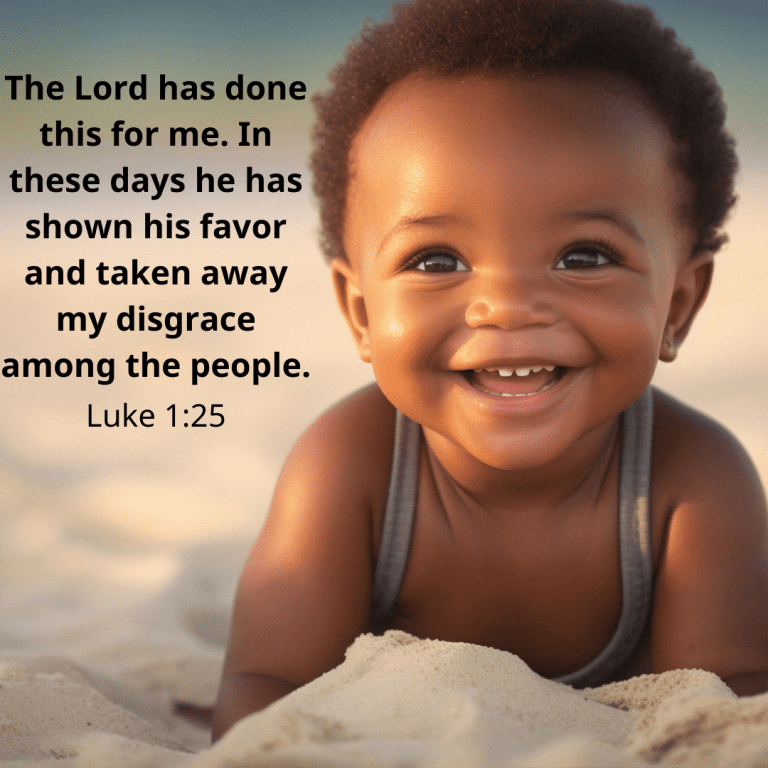The Parable of the Sower
(Mark 4.1-9Luke 8.4-8)1 That same day Jesus left the house and went to the lakeside, where he sat down to teach. 2 The crowd that gathered around him was so large that he got into a boat and sat in it, while the crowd stood on the shore. 3 He used parables to tell them many things.
“Once there was a man who went out to sow grain. 4 As he scattered the seed in the field, some of it fell along the path, and the birds came and ate it up. 5 Some of it fell on rocky ground, where there was little soil. The seeds soon sprouted, because the soil wasn't deep. 6 But when the sun came up, it burned the young plants; and because the roots had not grown deep enough, the plants soon dried up. 7 Some of the seed fell among thorn bushes, which grew up and choked the plants. 8 But some seeds fell in good soil, and the plants bore grain: some had one hundred grains, others sixty, and others thirty.”
9 And Jesus concluded, “Listen, then, if you have ears!”
The Purpose of the Parables
(Mark 4.10-12Luke 8.9Luke 10)10 Then the disciples came to Jesus and asked him, “Why do you use parables when you talk to the people?”
11 Jesus answered, “The knowledge about the secrets of the Kingdom of heaven has been given to you, but not to them. 12 For the person who has something will be given more, so that he will have more than enough; but the person who has nothing will have taken away from him even the little he has. 13 The reason I use parables in talking to them is that they look, but do not see, and they listen, but do not hear or understand. 14 So the prophecy of Isaiah applies to them:
‘This people will listen and listen, but not understand;
they will look and look, but not see,
15 because their minds are dull,
and they have stopped up their ears
and have closed their eyes.
Otherwise, their eyes would see,
their ears would hear,
their minds would understand,
and they would turn to me, says God,
and I would heal them.’
16 “As for you, how fortunate you are! Your eyes see and your ears hear. 17 I assure you that many prophets and many of God's people wanted very much to see what you see, but they could not, and to hear what you hear, but they did not.
Jesus Explains the Parable of the Sower
(Mark 4.13-20Luke 8.11-15)18 “Listen, then, and learn what the parable of the sower means. 19 Those who hear the message about the Kingdom but do not understand it are like the seeds that fell along the path. The Evil One comes and snatches away what was sown in them. 20 The seeds that fell on rocky ground stand for those who receive the message gladly as soon as they hear it. 21 But it does not sink deep into them, and they don't last long. So when trouble or persecution comes because of the message, they give up at once. 22 The seeds that fell among thorn bushes stand for those who hear the message; but the worries about this life and the love for riches choke the message, and they don't bear fruit. 23 And the seeds sown in the good soil stand for those who hear the message and understand it: they bear fruit, some as much as one hundred, others sixty, and others thirty.”
The Parable of the Weeds
24 Jesus told them another parable: “The Kingdom of heaven is like this. A man sowed good seed in his field. 25 One night, when everyone was asleep, an enemy came and sowed weeds among the wheat and went away. 26 When the plants grew and the heads of grain began to form, then the weeds showed up. 27 The man's servants came to him and said, ‘Sir, it was good seed you sowed in your field; where did the weeds come from?’ 28 ‘It was some enemy who did this,’ he answered. ‘Do you want us to go and pull up the weeds?’ they asked him. 29 ‘No,’ he answered, ‘because as you gather the weeds you might pull up some of the wheat along with them. 30 Let the wheat and the weeds both grow together until harvest. Then I will tell the harvest workers to pull up the weeds first, tie them in bundles and burn them, and then to gather in the wheat and put it in my barn.’”
The Parable of the Mustard Seed
(Mark 4.30-32Luke 13.18Luke 19)31 Jesus told them another parable: “The Kingdom of heaven is like this. A man takes a mustard seed and sows it in his field. 32 It is the smallest of all seeds, but when it grows up, it is the biggest of all plants. It becomes a tree, so that birds come and make their nests in its branches.”
The Parable of the Yeast
(Luke 13.20Luke 21)33 Jesus told them still another parable: “The Kingdom of heaven is like this. A woman takes some yeast and mixes it with a bushel of flour until the whole batch of dough rises.”
Jesus' Use of Parables
(Mark 4.33Mark 34)34 Jesus used parables to tell all these things to the crowds; he would not say a thing to them without using a parable. 35 He did this to make come true what the prophet had said,
“I will use parables when I speak to them;
I will tell them things unknown since the creation of the world.”
Jesus Explains the Parable of the Weeds
36 When Jesus had left the crowd and gone indoors, his disciples came to him and said, “Tell us what the parable about the weeds in the field means.”
37 Jesus answered, “The man who sowed the good seed is the Son of Man; 38 the field is the world; the good seed is the people who belong to the Kingdom; the weeds are the people who belong to the Evil One; 39 and the enemy who sowed the weeds is the Devil. The harvest is the end of the age, and the harvest workers are angels. 40 Just as the weeds are gathered up and burned in the fire, so the same thing will happen at the end of the age: 41 the Son of Man will send out his angels to gather up out of his Kingdom all those who cause people to sin and all others who do evil things, 42 and they will throw them into the fiery furnace, where they will cry and gnash their teeth. 43 Then God's people will shine like the sun in their Father's Kingdom. Listen, then, if you have ears!
The Parable of the Hidden Treasure
44 “The Kingdom of heaven is like this. A man happens to find a treasure hidden in a field. He covers it up again, and is so happy that he goes and sells everything he has, and then goes back and buys that field.
The Parable of the Pearl
45 “Also, the Kingdom of heaven is like this. A man is looking for fine pearls, 46 and when he finds one that is unusually fine, he goes and sells everything he has, and buys that pearl.
The Parable of the Net
47 “Also, the Kingdom of heaven is like this. Some fishermen throw their net out in the lake and catch all kinds of fish. 48 When the net is full, they pull it to shore and sit down to divide the fish: the good ones go into the buckets, the worthless ones are thrown away. 49 It will be like this at the end of the age: the angels will go out and gather up the evil people from among the good 50 and will throw them into the fiery furnace, where they will cry and gnash their teeth.
New Truths and Old
51 “Do you understand these things?” Jesus asked them.
“Yes,” they answered.
52 So he replied, “This means, then, that every teacher of the Law who becomes a disciple in the Kingdom of heaven is like a homeowner who takes new and old things out of his storage room.”
Jesus Is Rejected at Nazareth
(Mark 6.1-6Luke 4.16-30)53 When Jesus finished telling these parables, he left that place 54 and went back to his hometown. He taught in the synagogue, and those who heard him were amazed. “Where did he get such wisdom?” they asked. “And what about his miracles? 55 Isn't he the carpenter's son? Isn't Mary his mother, and aren't James, Joseph, Simon, and Judas his brothers? 56 Aren't all his sisters living here? Where did he get all this?” 57 And so they rejected him.
Jesus said to them, “A prophet is respected everywhere except in his hometown and by his own family.” 58 Because they did not have faith, he did not perform many miracles there.
Tjifaniso tje ndzwali
(Mako 4:1-9Luke 8:4-8)1 Mu zhuba ilelo zwalo Jesu wakabhuda mu ng'umba kanogala pa gungwa. 2 Mibunga ye bathu ikankubunganila, kadzina kangina mu n'goro kagala muuli, bathu bose bali mile mu phili ye gungwa. 3 Ipapo wakababudza zwithu zwinjinji nge zwifaniso eti,
“Ndzwali wakabhuda enodzwala. 4 Ngono kati edzwala, imwe mbewu ikawila mu zijana, ngono nyuni dzikazha dzikaija. 5 Imwe ikawila mu lushale, ngono ikashaya mavu akalizanila. Yakatjimbidza kumela, ngobe kwakabe kusina mavu manjinji akaivukidza. 6 Koga kukati zhuba libhuda, mmela ukatshwa ngono ukawoma, ngobe usina midzi. 7 Imwe mbewu ikawila pakati kwe mihwa, ngono mihwa ukakula ukadzipa mmela. 8 Kakale imwe mbewu ikawila mu mavu mabuya ikazwala zwizwalo zwinopinda zwakadzwagwa ka zana (100), imwe kuli makumi matathatu (60), imwe kuli makumi matatu (30). 9 Iye una zebe, ngaahwe.”
Nshingo we zwifaniso
(Mako 4:10-12Luke 8:9-10)10 Badiyiwa babe bakazha kunli bakambhuzwa beti, “Ini ulebeleka ne bathu ibaba nge zwifaniso kene?”
11 Kabashandula eti, “Zibo ye masazibgwe e bushe gwe kudzimu yakapiwa imwi koga ibo abazoipiwa. 12 Iye unohwa unowopiwa kuhwisisa, ndizo unowohwisisa nge buzhalo, koga iye usingahwe ne tjitukununu tjaanohwisisa unowotjitolegwa. 13 Ndizo ndilebeleka nabo nge zwifaniso, ngobe ne bakalinga abatobona ne bakahwilila abatohwa kakale abatohwisisa. 14 Nge kwabo, kowoshingikala tjakalebgwa nge nlebesambeli Isaya eti,
“ ‘Nge malebeswa mowohwa koga musingahwisise;
nge malebeswa mowobona koga musingabonesese,
15 ngobe mimoyo ye bathu ibaba yakakukutala,
ne zebe dzabo dzolema kuhwa,
kakale bakazwimba mesho abo.
Ha babe bangabona nge mesho abo,
bakahwa nge zebe dzabo,
bakahwisisa nge mimoyo yabo,
bakashandukila kundili, ndabe ndingabapodza.’
16 “Akakombolegwa mesho enyu, ngobe anobona ne zebe dzenyu dzakakombolegwa ngobe dzohwa. 17 Ndolebesa ndoti, balebesambeli banjinji ne balulwami, bakayemula kubona tjamunobona koga bakasitjibone ne kuhwa tjamunohwa koga bakasitjihwe.
Jesu unotjenesa tjifaniso tje ndzwali
(Mako 4:13-20Luke 8:11-15)18 “Tjihwililani kuti tjifaniso tje ndzwali tjodwani. 19 Ha mmwe ehwa dama le bushe asingalihwisise, mbi unozha kadzamula tjadzwagwa mu moyo uwe. Eyi ndiyo mbewu yakadzwagwa mu zijana. 20 Yakadzwagwa mu lushale imilile nthu unohwa dama kaliamutjila tjinyolotjo nge kushatha. 21 Koga se asina midzi, unolibhata tjibaka tjifupi koga. Kudziyila ne kuhwisiwa zogwadza ngekwe dama koti kuzha, katjimbidza awa mu kugalamoyo. 22 Yakadzwagwa pakati kwe mihwa imilile nthu unohwa dama ngono kudziyidzika nge zwe butjilo igogu kose nenge butjengedzi gwe fumwa zwikalidzipa, kukayita kuti lishaye zwizwalo. 23 Koga yakadzwagwa mu mavu mabuya imilile nthu unohwa dama kalihwisisa. Unodusa zwizwalo zwinopinda zwakadzwagwa kuli zana (100), nge tjimwe tjibaka kuli makumi matathatu (60), ngono tjimwe tjibaka kuli makumi matatu (30).”
Tjifaniso tje gotsha
24 Jesu kababudza tjimwe tjifaniso eti, “Bushe gwe kudzimu gungafanidzanyiwa ne nthu wakadzwala mbewu mbuyanana mu nnda uwe; 25 koga kukati bathu bakayizela, tjita tjitje tjikazha tjikadzwala gotsha pakati kwe mathunde, ngono tjibe tjiyenda. 26 Kukati mathunde ekula edusa zwizwalo, gotsha na ilo likabhuda. 27 Balanda be mweni we nnda bakazha kunli bakati, ‘Tetshi, apa amuzobe madzwala mbewu mbuyanana mu nnda wenyu kene? Ini nnda una makotsha?’ 28 Kati ku bali, ‘Kuna tjita tjakathama ikoku.’ Balanda bakambhuzwa bakati, ‘Apa moshaka kuti tiyende tinolisimula kene?’ 29 Kashandula eti, ‘Aa, ngobe mowoti musimula makotsha, mukadwa musimulilanya ne mathunde. 30 Letjani kukule kose kuswikila nsi we kuvuna. Nge nsi iwoyo ndowobudza bavuni nditi, Kutanga kubunganyani makotsha muasunge nge zwishwa kuti apisiwe, kudwapo mu kubunganye mathunde mualonge mu dula langu.’ ”
Tjifaniso tje mbewu tukununu
(Mako 4:30-32Luke 13:18-19)31 Kababudza tjifaniso tjimwe eti, “Bushe gwe kudzimu gofanana ne shanga tukununu ye lusaba, yakati nthu kaitola kaidzwala mu nnda uwe. 32 Ndiyo mbewu tukununu tjose mu mbewu dzose, koga ha ikula ndiyo inobe hwulu pa matenjana wose, ngono inobe nti, nyuni kwadzinozha dzikabaka mashaka mu thabi dzawo.”
Tjifaniso tje mbidzo
(Luke 13:20-21)33 Kababudza tjimwe tjifaniso eti, “Bushe gwe kudzimu gonga mbidzo yakatogwa nge nkadzi kaishanganya ne bgwisa gunjinji gwe tjiwunga kudzina bgwisa gose gubila.”
Kushingisa zwifaniso kwa Jesu
(Mako 4:33-34)34 Jesu wakaleba zwithu zose izwezwi ku mibunga ye bathu nge zwifaniso. Akuna tjaakababudza asingashingise tjifaniso. 35 Oku kwakabe kuli kuti kusiwile pasi matama akalebgwa nge nlebesambeli eti,
“Ndowozhula nlomo wangu nge zwifaniso,
ndowoleba tjakabe tjakasumbikala
kudwa mu kubumbiwa kwe shango.”
Jesu unotjenesa tjifaniso tje gotsha
36 Ipapo kasiya mbunga we bathu kangina mu ng'umba. Badiyiwa babe bakazha kunli beti, “Utitjenesele tjifaniso tje gotsha mu nnda.”
37 Kadabila eti, “Oyu wakadzwala mbewu yakalulwama Nkololo we Nthu. 38 Nnda i shango, ngono mbewu mbuyanana imilile bana be bushe. Gotsha bana be mbi, 39 ne tjita tjinobadzwala ndi Satani. Kuvuna kodwa bupelo gwe shango, ngono bavuni batumwa be kudzimu. 40 Koga se gotsha lisimugwa likapisiwa mu moto, kowobe kwakajalo mu bupelo gwe shango. 41 Iye Nkololo we Nthu unowotuma batumwa babe, ngono banowosimula bedusa mu bushe gugwe tjimwe ne tjimwe tjinozhisa jinyo na ibo bose banoyita mbipo. 42 Banowobalashila mu bhuba le moto, kunowobe yapo kulila ne kulobanya meno nge kugwadziwa kukulu. 43 Ipapo balulwami banowopenya se zhuba mu bushe gwa Tate babo. Iye una zebe ngaahwe.
Tjifaniso tje fumwa yakasumbikala
44 “Bushe gwe kudzimu gofanana ne fumwa yakasumbikiwa mu nnda. Ha nthu aiwana kaivumbika ngono mu kushatha kukwe kanotengesa kose kwaakabe anako katenga nnda iwoyo.
Tjifaniso tje mabgwe mabuya
45 “Kakale Bushe gwe kudzimu gofanana ne ntengi unoshaka mabgwe mabuya. 46 Kukati awana le ntengo upezhugwi, kayenda kanotengesa kose kwaanako kalitenga.
Tjifaniso tje gwanga
47 “Kakale bushe gwe kudzimu gofanana ne gwanga gwakaposegwa mu gungwa ngono gukabhata njudzi dzose dze hwobe. 48 Gukati gwazhala balume bakagukwebela pa phili. Ipapo bakagala pasi bakakubunganyila hwobe dzakalulwama mu zwija, koga belasha dzisakalulwama. 49 Kowobe kwakajalo mu bupelo gwe shango. Batumwa be kudzimu banowozha kuwothubukanya babi mu balulwami. 50 Bakalashila babi mu bhuba le moto kunowobepo kulila ne kulobanya meno nge kugwadziwa kukulu.”
Zwithu zwitshwa ne zwikulukugwi
51 Jesu kababhuzwa kati, “Apa mahwisisa zwithu izwezwi zose kene?”
Bakadabila beti, “Ee.”
52 Ngono kati ku bali, “Ndizo N'diyi mmwe ne mmwe we nlayo wadiyiwa ngekwe bushe gwe kudzimu unofanana ne mweni we ng'umba unodusa mu dula lile fumwa tshwa ne hwulukugwi.”
Jesu unolambiwa ku Nazareta
(Mako 6:1-6Luke 4:16-30)53 Kukati Jesu apedza zwifaniso izwezwi kadwa ipapo, 54 kalinga ku shango ya kanyi kwabo kati eswika katangisa kudiya bathu mu ng'umba yabo ye mitembezelo, ngono bakakaabala. Bakabhuzwana beti, “Iwoyu nlume wakawana poni butjenjedu igogu ne masimba iyawa e kuthama matjenamiso kene? 55 Apa ate ali iye nkololo we mbezhi kene? Apa mmeyabe ate Mariya kene, kakale apa banung'una babe ate Jakubo na Josefa na Simoni na Judasi kene? 56 Apa hazwadzi dzidze dzose adzinaswi kene? Ngono iwoyu nlume wakazwitola ngayi kene zwithu izwezwi?” 57 Ngono bakakuthika nge kukwe. Koga Jesu kati ku bali, “Nlebesambeli aatoshaya tjilumbi mu shango imwe ne imwe kuzhe kwe shango ya kanyi kwabo nenge mu nsha wa kanyi kwabo.”
58 Aazoyita matjenamiso manjinji ipapo nge kusheta kugalamoyo kwabo.




